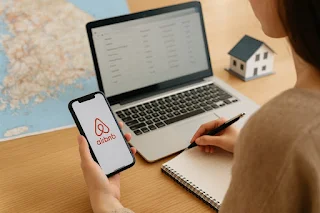Finding a place to live in Korea—even just for a few weeks or months—can be confusing for newcomers. Whether you’re a student on exchange, a digital nomad, a language school attendee, or just someone staying between leases, you’ll need a place to stay that’s safe, affordable, and reasonably comfortable.
Luckily, Korea offers a wide range of short-term housing options. But each one comes with its own pros, cons, costs, and quirks. In this guide, we’ll compare the most common types of short-term housing available in Korea in 2025: goshiwons, officetels, serviced apartments, and Airbnb. We’ll break down who each option is best for, what to expect, and tips to make the most of your stay.
1. Goshiwons (고시원)
What is it? Goshiwons are tiny single rooms often rented out to students or people preparing for exams. These days, they’re also popular with short-term foreign visitors because they’re cheap, easy to move into, and usually don’t require a deposit or long contract.
What to Expect:
Room size is usually between 4–6m²
Some include a private bathroom; others use shared bathrooms
Shared kitchen or free rice/kimchi included in some places
Very basic furniture: bed, desk, closet, Wi-Fi
Pros:
Cheapest option available (approx. 300,000–500,000 KRW/month)
No deposit or key money needed
Move in immediately
Located in most university or city center areas
Cons:
Tiny space
Paper-thin walls, low soundproofing
Often shared bathroom/kitchen
Limited luggage storage
Best For: Students, budget travelers, short stays under 3 months.
2. Officetels (오피스텔)
What is it? "Officetel" is a mix of "office" and "hotel." These are studio apartments in high-rise buildings that are legally zoned for both business and residential use. They often come furnished and are located in convenient areas.
What to Expect:
Studio-style room with bathroom, kitchen, washing machine
Often comes with fridge, microwave, bed, desk
-
Building has elevator, sometimes a security guard or door lock system
Pros:
More privacy and space
-
Monthly contracts often available through Airbnb or real estate agents
Some are well-furnished and move-in ready
Cons:
Rent typically ranges from 700,000–1.5 million KRW/month
Some require 1–2 million KRW deposit
-
Short-term leases may be hard to find unless using Airbnb-style platforms
Best For: Remote workers, solo professionals, couples, long-stay visitors.
3. Serviced Apartments
What is it? These are similar to hotel suites but rented monthly. They come with furniture, utilities, and even cleaning service. They’re often used by business travelers or foreigners relocating temporarily.
What to Expect:
Full-size apartment with hotel-like services
Weekly cleaning, fresh towels and bedding
Utilities and internet included in price
Pros:
High comfort and privacy
No separate utility payments
English-speaking staff common
Located in central neighborhoods
Cons:
Expensive: 1.5–3+ million KRW/month
Limited availability outside big cities
Best For: Executives, families, corporate relocations, those who value convenience over budget.
4. Airbnb
What is it? Yes, it’s still around. Airbnb remains popular for stays ranging from a few nights to several months. You can find everything from tiny studios to large family homes.
What to Expect:
Prices vary widely based on size, location, host
Includes furnished units, kitchen, washing machine
Some hosts offer discounts for weekly/monthly stays
Pros:
Easy booking process in English
No contracts or paperwork
Huge variety
Cons:
Not always legal (check reviews, host reputation)
Can be more expensive than local market rates
Lower quality control compared to hotels or officetels
Best For: Tourists, digital nomads, anyone needing flexibility and quick move-in.
Comparison Table
💸 Cost: 300,000–500,000 KRW/month
💰 Deposit: No
🛁 Private Bath: Sometimes
🛋️ Furnished: Basic
🗓️ Lease Term: Daily/Monthly
👤 Best For: Students, budget travelers
💸 Cost: 700,000–1,500,000 KRW/month
💰 Deposit: Often
🛁 Private Bath: Yes
🛋️ Furnished: Yes
🗓️ Lease Term: 1–12 months
👤 Best For: Professionals, solo expats
💸 Cost: 1,500,000–3,000,000+ KRW/month
💰 Deposit: Rare
🛁 Private Bath: Yes
🛋️ Furnished: Yes (hotel-style)
🗓️ Lease Term: Monthly
👤 Best For: Families, business visitors
💸 Cost: Varies by host/location
💰 Deposit: No
🛁 Private Bath: Yes
🛋️ Furnished: Varies
🗓️ Lease Term: Nightly/Monthly
👤 Best For: Tourists, remote workers
Tips for Finding Short-Term Housing in Korea
-
Use the Right Apps & Websites:
-
For goshiwons: look up on Naver, Daum, or go by foot in university areas
For officetels: try Zigbang, Dabang, or local realtors
For Airbnb: use filters for long-term discounts
-
-
Don’t Be Afraid to Negotiate:
Especially if staying more than a month
Some goshiwon owners may offer cash discounts
-
Always Check What’s Included:
Ask about Wi-Fi, bills, laundry access, cooking rules
-
Inspect in Person When Possible:
Pictures may not reflect reality
Use a friend or realtor to check if you’re still abroad
-
Know Your Rights:
Short-term stays often don’t offer much tenant protection
Airbnb has customer support; private landlords may not
Choosing the right short-term housing in Korea depends on your needs, lifestyle, and budget. If you’re looking to save money and don’t mind tight spaces, a goshiwon could be a great fit. Want more comfort and privacy? Go for an officetel or serviced apartment. If you want the easiest and most flexible experience, Airbnb might be your go-to.
No matter where you choose to stay, planning ahead will save you time, money, and stress. And remember—even a tiny room in Korea can be a big adventure.

